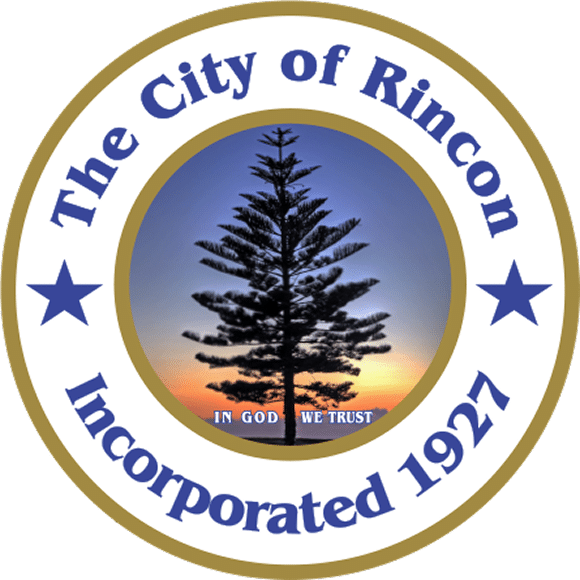News
7
Jan
2026
City of Rincon to Hold Special Council Meeting for Swearing-In of Elected Officials
FOR IMMEDIATE RELEASE Rincon, GA (January 7, 2025) The City of Rincon will hold a specially called City Council meeting…
Read More
9
Dec
2025
Rincon Christmas Market Brings Holiday Magic to Freedom Park December 12 – January 3
RINCON, GA (December 8, 2025) — The City of Rincon is thrilled to announce the return of the Rincon Christmas…
Read More
20
Nov
2025
City of Rincon 2025 Municipal Election
Read More
30
Oct
2025
City of Rincon Budget Public Hearing
CITY OF RINCON Notice of Public Hearing The City of Rincon will hold a Public Hearing on Monday, November 24, 2025,…
Read More
31
Jul
2025
Rincon Rocking Rodeo Round-up 2025
Rodeo Round-up 2025 coming October 10-11-2025 at Freedom Park. For more information and to become a sponsor, click here.
Read More
12
Mar
2025
Attention, City of Rincon residents and visitors!
Starting Monday, March 17, City Hall will open to the public at 8:30 AM. Additionally, phone lines will begin ringing…
Read More
10
Jun
2024
Train FAQ’s
Train Complaint FAQs There is a non-moving train that has been blocking the roadway for a long period of time,…
Read More
7
Mar
2024
New Citizen Central App
Read More
18
Mar
2020
No Wipes in the Pipes
The biggest sources of sewer overflows and backups are rags and debris, mostly flushable wipes. Flushable baby wipes and sani-wipes: No…
Read More
